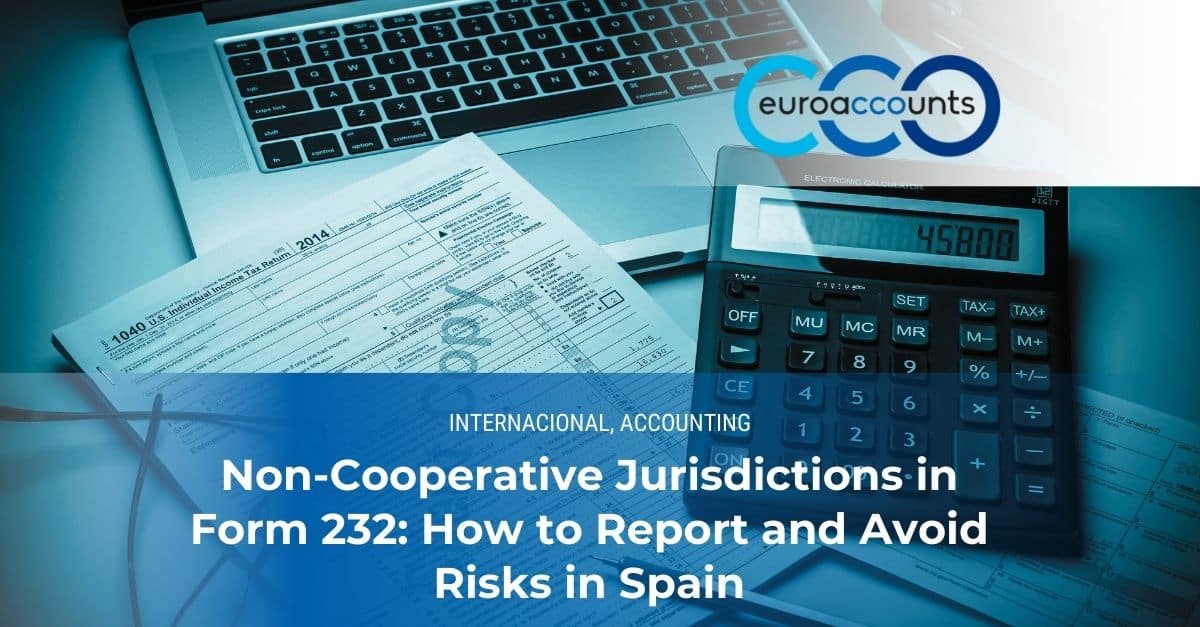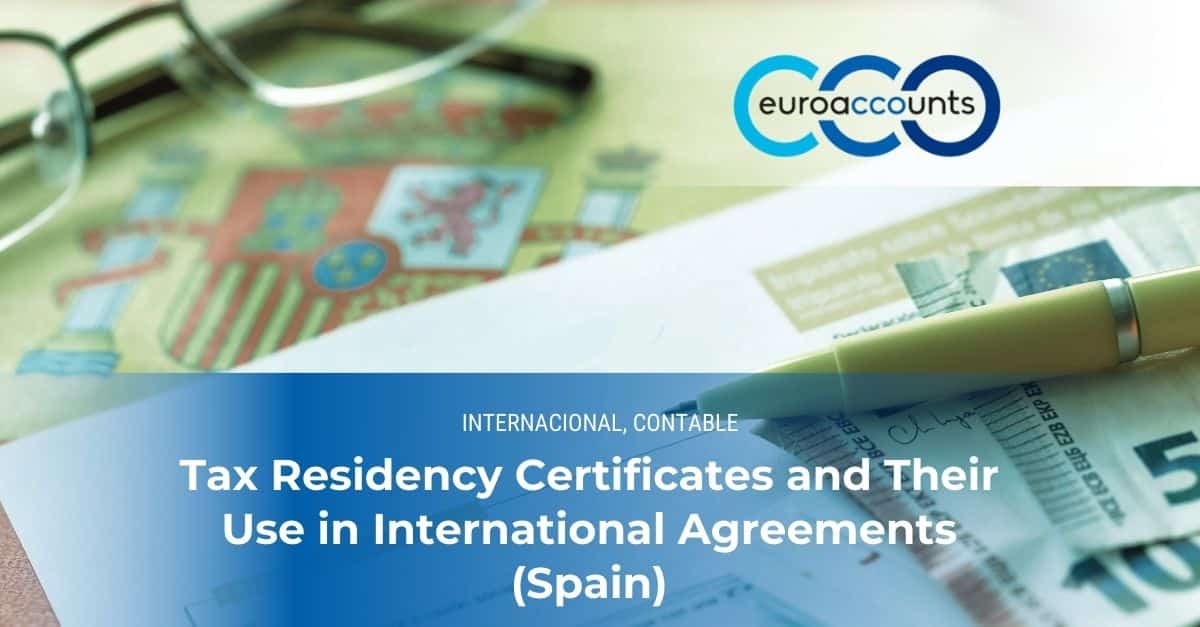What Does Tax Compliance Mean for a Multinational in Spain?
Tax compliance for a multinational corporation in Spain is not just a legal requirement — it’s a critical component for operating safely, efficiently, and in alignment with group-wide objectives. From VAT registration to proper transfer pricing and use of the tax consolidation regime, every decision affects both risk exposure and profitability.
Spain, as one of Europe’s leading economies, offers specific tax advantages for international groups, but it also demands precise interpretation of its tax regulations. A miscalculation or late filing can lead to significant penalties and damage the subsidiary’s reputation with the parent company.
This guide covers the essentials of tax compliance in Spain, including key areas like VAT, Corporate Income Tax, transfer pricing, and the tax consolidation regime. With a practical approach and real examples, this guide is tailored for CFOs, tax managers, and advisors of international groups operating — or planning to operate — in the Spanish market.
Why trust Euroaccounts? Because we’ve been helping international subsidiaries turn tax compliance into a competitive advantage for over 25 years. We are the local partner for listed multinationals in Paris, Toronto, and Lisbon — and we know how to bridge local obligations with global expectations.
Why Is a Solid Tax Strategy Essential?
A solid tax strategy enables multinational corporations to not only comply with local regulations but also anticipate risks, optimize their tax burden, and streamline group-level decision-making. In a constantly evolving regulatory environment, proactive planning is key.
In Spain, tax legislation imposes specific requirements for intercompany documentation, special regimes, and alignment with EU and international standards. A poorly designed structure or lack of oversight can result in double taxation, penalties, or lost tax benefits.
Many subsidiaries also face pressure from their head office to deliver reliable results, meet strict deadlines, and maintain robust financial control. In this context, a sound tax strategy also becomes a governance tool that strengthens legal certainty and operational efficiency.
At Euroaccounts, we help our clients define clear tax policies aligned with both Spanish regulations and group standards, so they can focus on growth with full compliance peace of mind.
Common Risks of Non-Compliance
Non-compliance with Spanish tax regulations can have serious consequences — financially and reputationally. Unlike some other jurisdictions, Spain imposes penalties not only for fraud but also for procedural errors and late filings.
Common risks include:
- Financial penalties for late filings or errors in forms such as 303 (VAT), 349 (intra-community operations), or 200 (Corporate Income Tax).
- Late fees and loss of tax incentives due to incorrect application of deductions or exemptions.
- Tax audits that result in transfer pricing adjustments or reassessments of intercompany transactions.
- Group reporting issues when accounting errors affect provisions, depreciation, or financial statements.
- Reputational damage that may impact relationships with banks, investors, or authorities.
Many of these issues can be avoided with a robust tax compliance system — including strong internal controls, automation, and expert support. At Euroaccounts, we proactively identify and mitigate these risks so that your team can stay focused on the business.
VAT in Spain: Key Rules for International Companies
Who Needs to Register for VAT?
Any company, whether Spanish or foreign, that carries out VAT-taxable activities in Spain must register. This includes sales, intra-community acquisitions, digital services, or warehousing goods. Even without a permanent establishment, some entities may be required to appoint a fiscal representative in Spain.
Applicable Rates and Special Regimes
The standard VAT rate is 21%, with reduced rates of 10% and 4% for certain goods and services. Special regimes also apply — for travel agencies, second-hand goods, investment gold, or simplified schemes. International businesses must understand these, especially when dealing with triangular operations or multiple jurisdictions.
Electronic Invoicing and the SII System
Spain requires certain companies to use the Immediate Supply of Information (SII), which involves real-time electronic reporting of invoice records to the tax authorities. This system is mandatory for large businesses or those under the monthly refund scheme. B2B e-invoicing will soon be mandatory for all companies, making it critical for subsidiaries to prepare in advance.
Common VAT Filing Errors in International Groups
- Misidentifying the place of supply and reporting VAT in the wrong country.
- Duplicate filings due to misunderstanding of the OSS (One-Stop-Shop) regime.
- Incorrectly declaring exempt operations without proper documentation.
- Improper use of VAT prorating in mixed operations.
At Euroaccounts, we help clients manage VAT strategically — avoiding common errors and seizing optimization opportunities. We advise on SII, VAT recovery, and cross-border invoicing flows.
Read more about VAT compliance for multinational companies in Spain.
Corporate Income Tax: Keys to Proper Implementation
Which Entities Are Subject to CIT in Spain?
All Spanish-resident entities with legal personality — such as limited companies, corporations, branches, and subsidiaries — must pay Corporate Income Tax (CIT). Non-resident entities with a permanent establishment in Spain are also subject to CIT on local income.
The general tax rate is 25%, though a 15% rate may apply to new companies for their first two profitable years. There are also special regimes for partially exempt entities, non-profits, and tax groups.
Deductions, Allowances, and Accelerated Depreciation
Spain offers various tax incentives that reduce the effective tax burden when applied correctly:
- R&D Tax Credit: up to 42% of R&D and innovation expenditures.
- Export and foreign-source income deductions.
- Accelerated or free depreciation under specific conditions.
- Loss carryforwards with no time limit (subject to annual thresholds).
These benefits must be backed by solid documentation and incorporated into a tax plan aligned with current regulations.
Real Examples of Tax Optimization with Euroaccounts
We’ve helped clients like Balt and Essence optimize their tax structure by:
- Applying R&D incentives in the healthcare sector.
- Adapting accounting policies to maximize deductible provisions.
- Designing efficient structures for financial costs and reserves.
- Supporting direct communication with auditors and tax authorities to justify applied criteria.
Our technical and proactive approach helps clients meet all their tax obligations while leveraging legal tax advantages.
Transfer Pricing: How to Stay Compliant in Spain
Required Documentation and Types of Related-Party Transactions
Transactions between group entities must comply with the arm’s length principle. Spanish tax law requires detailed documentation to prove that transfer prices are fair and market-based.
Both international subsidiaries and Spanish tax groups are subject to these rules. Common intercompany transactions include:
- Management or technical services between parent and subsidiary
- Licensing of intangibles (brands, software, know-how)
- Intragroup financing and loans
- Sale or purchase of goods within the group
You must prepare two tiers of documentation:
- Group-level documentation (Master File)
- Local documentation (Local File)
Accepted Methods and Non-Compliance Penalties
Spain accepts OECD-compliant methods such as Comparable Uncontrolled Price, Cost Plus, or Transactional Net Margin Method. The choice must be justified based on transaction nature and data availability.
Lack of documentation may result in:
- Mandatory tax adjustments and reassessed taxable base
- Penalties ranging from 15% to 100% of the adjustment
- Double taxation if adjustments are not mirrored in the other country
Learn how to properly calculate and justify transfer prices according to Spanish tax rules.
Case Study: Implementing a Transfer Pricing Policy
A tech company headquartered in Germany with a subsidiary in Barcelona asked us to structure its internal IT services pricing. At Euroaccounts, we:
- Analyzed the service flow and functional structure.
- Defined a pricing policy based on the cost-plus method.
- Prepared both Master and Local File documentation, and aligned internal reporting accordingly.
- Coordinated with German tax advisors to ensure cross-border consistency.
The result: full compliance with no audit adjustments, and a transparent pricing model that withstood regulatory scrutiny.
Tax Consolidation: Benefits and Challenges for Multinational Groups
What Is the Tax Consolidation Regime and How Does It Work?
Spain allows qualifying corporate groups to opt for the tax consolidation regime, under which the group is taxed as a single entity for Corporate Income Tax purposes. Instead of filing separate returns, a single consolidated return is submitted — combining the profits and losses of each entity.
This regime is regulated under Article 55 and following of the Spanish Corporate Income Tax Law. To qualify:
- The parent company must directly or indirectly own at least 75% of the subsidiaries.
- All entities must be subject to Spanish CIT and not under a transparent regime.
- A formal election must be filed to apply the regime.
See how to form a tax group in Spain and take advantage of the consolidation regime.
Requirements and Benefits for the Group
Key advantages of tax consolidation include:
- Offsetting losses and profits across group entities.
- Simplified group-wide installment payments.
- Reduced administrative burden and more efficient tax planning.
- Group-level application of tax credits and deductions.
However, the regime also imposes obligations such as:
- Preparation of consolidated financial statements.
- Elimination of intercompany transactions for tax purposes.
- Joint liability among group members for the consolidated tax liability.
Common Mistakes and How to Avoid Them
At Euroaccounts, we’ve seen frequent errors during first-time implementations:
- Failure to identify all required entities for inclusion.
- Poorly prepared eliminations of intragroup transactions.
- Inconsistencies between accounting records and the consolidated return.
- Lack of internal communication between subsidiaries.
That’s why we help our clients implement the regime with a clear structure, strict documentation control, and tailored tools — turning consolidation into an efficiency driver instead of a source of risk.
Why Delegate Tax Compliance to Local Experts?
Advantages of Working with Euroaccounts
Multinational companies in Spain often face dual pressure: complying with local rules while staying aligned with group standards. A specialized local partner can help manage both efficiently.
At Euroaccounts, we act as an extension of your finance team — with fiscal, accounting, and payroll consultants who understand Spanish law and international reporting (IFRS, US GAAP, etc.).
By outsourcing to a local expert, you can:
- Avoid penalties from missing deadlines or format errors.
- Improve coordination with tax advisors in other countries and ensure consistency in intercompany reporting.
- Save time and internal resources on administrative processes.
- Access up-to-date knowledge on tax reforms and audit trends.
Success Stories: Balt and Essence
Companies like Balt and Essence have relied on Euroaccounts since entering the Spanish market. With our coordinated and specialized support, both scaled operations without inflating their local structures.
- Balt: Quintupled its sales in Spain within five years, maintaining full tax compliance with its French parent company.
- Essence: Centralized its European expansion in Spain, using our teams to manage compliance in Germany, Ireland, and Portugal.
Solutions Tailored to Your Group Structure
Every group is different. That’s why we tailor our services to:
- Fast-growing tech startups expanding into Europe
- Public companies requiring consolidated financial reporting
- Holdings managing diverse business units across multiple countries
With Euroaccounts, tax compliance becomes a tool for growth — not a burden.
Checklist: Quick Review of Your Tax Obligations in Spain
Is your company fully compliant with Spanish tax requirements? Use this quick checklist to assess your current situation and spot any gaps:
- Is your company correctly registered for Spanish VAT?
- Are forms 303, 349, and 347 submitted on time?
- Is your accounting aligned with the Spanish General Accounting Plan (PGC)?
- Are provisions, amortizations, and year-end closings recorded in accordance with local rules?
- Is Corporate Income Tax (Form 200) filed on time?
- Are deductions and tax benefits correctly applied?
- Do you have documented transfer pricing policies (Master File + Local File)?
- If you’re in a tax group, are intragroup eliminations properly managed?
- Do you regularly check electronic notifications from the Spanish Tax Agency (DEHú)?
- Is your finance team up to date on key legislative changes?
If you didn’t check all the boxes, you may be exposed to avoidable tax risks. At Euroaccounts, we offer a free assessment of your current tax setup and provide tailored recommendations for your group structure.
Would you like us to review your case? Schedule an initial, no-obligation consultation to explore how we can optimize your compliance strategy.
How to Turn Tax Compliance into a Competitive Advantage
While tax compliance in Spain can seem complex, with the right strategy it becomes a tool for efficiency, risk reduction, and better global positioning. Multinational companies that manage tax compliance well don’t just avoid penalties — they also optimize profitability and strengthen internal governance.
At Euroaccounts, we help subsidiaries and international groups embed compliance into their operations with a technical, coordinated, and multilingual approach. We understand Spanish legislation as well as the expectations of parent companies — so your finance teams can focus on what matters: growth.
Want to ensure your company meets all tax obligations in Spain? Schedule a call with our experts and see how we can help you turn compliance into a real source of value.





